Good Luck (2017) HD
| Director | : | Ben Russell. |
| Release | : | August 20, 2017 |
| Country | : | France. |
| Language | : | Srpski. |
| Runtime | : | 143 |
| Genre | : | Documentary. |
‘Good Luck’ is a movie genre Documentary, was released in August 20, 2017. Ben Russell was directed this movie . This movie tell story about A visceral non-fiction portrait of hope and sacrifice in a time of global economic turmoil, filmed between a large-scale underground mine in post-war Serbia and an illegal mining collective in the tropical heat of Suriname.
Watch and Download Movie Good Luck (2017)
Do not miss to Watch movie Good Luck (2017) Online for free with your family. only 2 step you can Watch or download this movie with high quality video. Come and join us! because very much movie can you watch free streaming.
Watch Good Luck 2017 For Free online, Watch Good Luck 2017 Online 123movie, film Good Luck online, Good Luck film download, watch Good Luck 2017 film online now, Watch Good Luck 2017 Online Free megashare, Watch Good Luck 2017 Online Putlocker, Good Luck 2017 movie trailer, movie Good Luck 2017 download, Good Luck 2017 streaming, Streaming Good Luck 2017 Online Free Megashare, watch full film Good Luck online, watch film Good Luck now, watch full Good Luck film online, Watch Good Luck 2017 Online 123movies, Good Luck 2017 film, Watch Good Luck 2017 Online Free Viooz, Streaming Good Luck 2017 For Free Online, Watch Good Luck 2017 Online Megashare, Watch Good Luck 2017 Online Free 123movie, trailer movie Good Luck, Watch Good Luck 2017 Online Free Putlocker, Good Luck 2017 Watch Online, download film Good Luck, Watch Good Luck 2017 Online Free, streaming Good Luck, streaming film Good Luck, Watch Good Luck 2017 Online Viooz, Watch Good Luck 2017 Online Free hulu, film Good Luck streaming, download movie Good Luck 2017 now, watch full Good Luck 2017 movie, Watch Good Luck 2017 Online Free netflix.
‘Til Death Do Us Part (2017)
| Release | : | 2017-09-29 |
| Country | : | United States of America |
| Language | : | English |
| Runtime | : | 99 |
| Genre | : | Thriller |
Synopsis
Watch ‘Til Death Do Us Part Full Movie Online Free. Movie ‘’Til Death Do Us Part’ was released in 2017-09-29 in genre Thriller.
Michael and Madison Roland had planned to spend the rest of their lives together, until one day Michael’s controlling ways turned their perfect marriage. With the help of her best friend, Madison decides to get away. After adopting a new identity, she meets Alex Stone and learns to love again. All is well, until Michael discovers Madison’s whereabouts, and recreate the nightmare she once lived all over again.
Streaming Movie ‘Til Death Do Us Part
(2017) Online
Incoming search term :
Watch ‘Til Death Do Us Part Full Movie Online Free Streaming In HD Quality, watch full ‘Til Death Do Us Part movie, Watch ‘Til Death Do Us Part 2017
Online Free Viooz, Watch ‘Til Death Do Us Part 2017 Online Free, Watch ‘Til Death Do Us Part 2017 Online Putlocker, film ‘Til Death Do Us Part
online, Streaming ‘Til Death Do Us Part 2017 For Free Online, streaming movie ‘Til Death Do Us Part 2017, ‘Til Death Do Us Part film trailer,
‘Til Death Do Us Part movie trailer, live streaming film ‘Til Death Do Us Part 2017, Streaming ‘Til Death Do Us Part 2017 Online Free Megashare,
movie ‘Til Death Do Us Part streaming, Watch ‘Til Death Do Us Part 2017 For Free online, film ‘Til Death Do Us Part 2017 online streaming,
download ‘Til Death Do Us Part 2017 movie now, movie ‘Til Death Do Us Part 2017 download, watch full movie ‘Til Death Do Us Part 2017, trailer
film ‘Til Death Do Us Part 2017, Watch ‘Til Death Do Us Part 2017 Online 123movies, Watch ‘Til Death Do Us Part 2017 Online Free 123movie, Watch
‘Til Death Do Us Part 2017 Online Free Putlocker, movie ‘Til Death Do Us Part 2017 trailer, Watch ‘Til Death Do Us Part 2017 Online Free
netflix, watch ‘Til Death Do Us Part film online now, ‘Til Death Do Us Part 2017 movie streaming, ‘Til Death Do Us Part 2017 Watch Online, Watch
‘Til Death Do Us Part 2017 Online 123movie, download movie ‘Til Death Do Us Part, Watch ‘Til Death Do Us Part 2017 Online Free megashare, watch
‘Til Death Do Us Part movie now, Watch ‘Til Death Do Us Part 2017 Online Free hulu, Watch ‘Til Death Do Us Part 2017 Online Viooz, live streaming
movie ‘Til Death Do Us Part 2017, ‘Til Death Do Us Part live streaming film online, movie ‘Til Death Do Us Part 2017, Watch ‘Til Death Do Us Part 2017 Online
Megashare.
In a judgement that may bring relief to millions of commuters in the NCR region, the Allahabad High Court today ruled that henceforth no toll tax shall be taken from those using the 9.2-km-long, eight-lane Delhi-Noida Direct (DND) flyway.
A division bench comprising Justices Arun Tandon and Sunita Agarwal passed the order while allowing a public interest litigation filed by the Federation of Noida Residents’ Welfare Association.
The PIL, which was filed in 2012, had challenged the “levy and collection of toll in the name of user fee by Noida Toll Bridge Company”.
The high court had on August 8 reserved its judgement on the plea.
In a more than 100-page judgement, the court held, “The user fee which is being levied/realised is not supported by the legal provisions relied upon by the Concessionaire (Noida Toll Bridge Company), Infrastructure Leaning and Financial Services (promoter and developer of the project) and the Noida Authority.”
It said that the “right to levy and collect user fee from the commuters as conferred upon the Concessionaire under the concession agreement suffers from excessive delegation and is contrary to the provisions the UP Industrial Development Act”.
The court noted that “the Concessionaire, according to their own financial statements, has recovered Rs 810.18 crore (approx) from toll income from the date of commencement of the project till 31.03.2014 etoro and after deduction of operation and maintenance expenses and corporate income tax, the surplus was Rs 578.80 crore (computed before interest, depreciation, and lease rental received by the Concessionaire)”.
“They have further realised user fee/toll two-and-a-half years thereafter between 01.04.2014 and 30.09.2016 which, as per the collection of user fee in the year 2013-14 would work out to an additional sum of Rs 300 crore (approx).
“We are, therefore, more than satisfied that the Concessionaire cannot now recover the user fees from the users/commuters of the Noida Toll Bridge the DND Flyover,” the high court said.
The Supreme Court today retained its direction to Karnataka to release 2000 cusecs of Cauvery water per day to Tamil Nadu till further orders and asked the two governments to ensure peace and harmony, saying citizens should not become law unto themselves.
A three-judge bench headed by Justice Dipak Misra, which commenced the crucial hearing on various issues arising out of the dispute between Tamil Nadu and Karnataka over sharing of Cauvery waters, said it first intended to adjudicate the issue of maintainability of appeals filed by both the states and Kerala against the tribunal’s 2013 award.
“We intend to first adjudicate issue of maintainability of appeals filed by Karnataka, Tamil Nadu and Kerala. At this juncture, the interim order dated October 4 directing phentermine Karnataka to release 2000 cusecs of water per day to Tamil Nadu will continue till further orders,” the bench also comprising Justices Amitava Roy and A M Khanwilkar said.
The bench said “morality of respect for both the states, among people of both the states and properties, should be maintained”.
The court also noted the submission of Karnataka that it has complied with the earlier order of releasing 2000 cusecs of water to Tamil Nadu.
Both Karnataka and Tamil Nadu said they were in dire need of water, which was even supported by Attorney General Mukul Rohatgi.
During the hearing, Rohatgi submitted that the apex court-appointed Supervisory Committee, formed to inspect Cauvery basin to assess the ground realities in the region, has submitted its report.
The bench said it would first go into the issue of maintainability of appeals filed by Karnataka, Tamil Nadu, Kerala and Puducherry against the award of tribunal and then hear the arguments on the report filed by the committee.
The Attorney General said the appeals filed by the states were not maintainable as per article 131 and 262 of the Constitution and the provisions of Inter-state River Water Disputes Act, 1956.
He said as per the constitutional provisions, a decree passed by a tribunal will be like a decree of Supreme Court which cannot hear the appeals against its own order.
Senior advocate and noted jurist Fali S Nariman, appearing for Karnataka, said the appeals are maintainable as Supreme Court can only adjudicate the disputes between two states.
A city court has decided to proceed with the trial of a driver who had allegedly rammed his vehicle into the car of Union Minister Gopinath Munde, leading to the BJP leader’s death two years ago.
Special Judge Gurdeep Singh refused to discharge accused driver Gurvinder Singh in the case and held there was “prima facie” evidence to try him for the offences including the crime of rash driving and culpable homicide not amounting to murder (killing without motive).
64-year-old Munde, a prominent face of the BJP in Maharashtra, had died apparently of shock and cardiac arrest suffered during the road accident on June 3, 2014.
The defendant’s contention that he was innocent and the drivers of cars ferrying VIPs drove at high speed, did not find favour with the court.
“Each case depends on its own facts and nothing can be generalised in this manner. There is no presumption that all the drivers of VIPs, drive at a fast speed. Although, it may be true in some cases,” the court said, adding that the matter will be looked into during the trial.
“As per the charge sheet and other evidence on record, prima facie offence is made out against the revisionist (accused) under Section 279 (rash driving) and 304-A (culpable homicide not amounting to murder) IPC,” it said.
The court passed the order on an appeal filed by the accused against a magisterial court judgment on which charges were framed against him.
It also noted that according to an expert, the speed of car of the accused was more than that of the politician’s car.
The court said the FIR was registered on the statement given by Munde’s driver.
The accused, who is out on bail, had challenged the trial court order on the ground that he was the original complainant but due to political pressure, the prosecution had made him the accused.
He had claimed that he was the initial caller to the police and the Minister’s vehicle had sped away from the spot after hitting his vehicle, adding that it was the driver of the politician who was speeding with a red beacon light.
The Bombay High Court has dismissed a petition praying for video recording of proceedings in all courts of the country on the ground that it was a fundamental right of a citizen to know the judicial procedures and happenings during hearing of cases.
The petition, filed by Navneet Khosla, was dismissed by Chief Justice Dr Manjula Chellur and Justice M S Sonak on the ground that the Bombay High Court earlier rejected similar plea in two other writ petitions.
The court was of the view that video recording of judicial proceedings cannot be a regarded as a fundamental right of a citizen, but can be allowed only if it is necessary in a particular case or in a given situation.
Referring to earlier judgements of the Bombay High Court that have set precedents, the bench said that the observations therein are quite clear. On the basis of the same, it cannot be said that the petitioner has made out any case for grant of any of the reliefs prayed for by him in the petition.
“For the aforesaid reasons, we dismiss this petition. On this occasion however, there shall be no order for payment of costs,” said the bench in its order on October 6.
The earlier high court judgements had listed a series of circumstances where such video recording in a court could be considered. This could be when the court wanted to talk to a witness through the medium of video conference in case if he or she is abroad and cannot travel to India, or in case of a witness who has a speech impediment or when the court wants to talk to a child in custodial matters.
Mathews Nedumpara, the counsel for petitioner, argued that Right to Information was a well recognised and integral part of the right to life within the meaning of Article 21 of the Constitution.
Also, Articles 14 and 19 of the Constitution, which deal with right to equality and right to freedom of expression respectively, are to be read together and so video-recording of court proceedings and telecast thereof, if it is necessary in public interest, is a fundamental right, Nedumpara argued.
As earlier judgements had not supported live telecasts and compulsory video recordings of a judicial proceedings, the high court dismissed Khosla’s petition on the same ground.
The Kerala High Court in L. Mini And Ors. Vs. Gireeshkumar And Anr., has dealt with a motor vehicle accident claim where the claimants were legal heirs of the deceased and the deceased was a pillion rider. The Division Bench comprising Justice CT Ravikumar and Justice KP Jyothindranath, although decided neither the rider of the bike nor the National Insurance Co. Ltd. were liable for compensation, held that the government should be liable to compensate the deceased or injured vehicle owners (compensate victim’s family in case of deceased). This appeal was filed by the wife, children and mother (claimants) of one Biju, who died in a motor vehicle accident occurred on 21.03.2010. Deceased Biju was the owner of the motor bike involved in the accident, which was being driven by Gireesh Kumar at the time of the accident. The vehicle involved in the accident was insured with the National Insurance Co. Ltd. in the claims petition. The petition was moved against the rider of the motor bike as well as the insurance company, but was dismissed on the ground that the deceased is not a third party and he is the insured himself. The following points for the consideration of this court by the claimants: 1) The rider being the primary tortfeasor, what will be his liability to the legal heirs of the deceased owner of the vehicle involved in the accident? Ans. Tortious liability based upon fault liability, thereon, will not be applicable. When the deceased was the owner of the vehicle involved, which was brought by him knowingly that it may cause accident if not dealt cautiously and when he is voluntarily riding upon the same and when the respondent rider was riding the same as authorised by him, it can be seen that the rider cannot be made liable for any compensation or fastened with liability as long as the accident was caused by any unintentional act of the rider of the bike. Thus, the rider will not be liable to pay compensation to the deceased. The legal heirs are entitled to claim compensation in a legal fiction as if stepping into the shoes of the deceased at the moment of death along with their own rights. If that is so, when the deceased got no right to claim compensation from the rider, the claimants will also automatically get no right to claim so. 2) An additional premium of Rs 50 was collected by the insurance company and there is a personal coverage up to Rs 1 lakh, which was not considered by the tribunal and whether such a claim can be agitated before the tribunal? Ans. The liability of the insurance company is a contractual liability. Their liability will be only that of the insured. Virtually, the insurer is only indemnifying the insured-owner and in this case, the deceased is the insured herein. Thus, there will be no statutory liability upon them pertaining to Section 147 of the Motor Vehicles Act, where third party claim against the insured/owner need be indemnified. Being one of the two parties to the contract of insurance, the insured-owner cannot be regarded as a third party. A careful reading of the section 165 of the Motor Vehicles Act shows that a claim for personal injury is not barred by section 147 even by the owner of the vehicle. It is true that by virtue of Section 147 of the Motor Vehicles Act, the statutory liability of the insurance company pertains only to third party claim. But it cannot be said in the light of the said section, the claim of the owner against the insurance company or any other person in respect of death or bodily injury will not lie, though the cause of action arose out of a motor vehicle accident. Thus the court said: “In this case, it can be seen that an additional premium of Rs 50 was paid. If the injured can make the claim, much less to say, the legal heirs can put forward the claim before the tribunal. Death is not disputed. Thus, the insurance company will be liable to that much amount covered by the policy. The quantification of the compensation is not warranted as this is a case of death. The limit of compensation is Rs 1 lakh. We, hereby, direct the insurance company to pay Rs1 lakh to the claimants, which shall be apportioned in between the claimants in equal shares. The amount will bear 8% interest from the date of petition till payment.” 3) The case in hand was filed under Section 166 of the Motor Vehicles Act. In view of the fact that even while dismissing the claims petition, the Motor Accident Claims Tribunal (MACT) had returned a definite finding as against the issue formulated for consideration viz., ‘at whose fault the accident and death of Shri. Biju took place’ that it was at the fault of the first respondent that the accident and death of Shri. Biju took place so there was absolutely no reason to interfere with the finding of the tribunal that the accident in which Biju died occurred due to the negligence of the first respondent. Ans. While considering the motor vehicle accident pertaining to a two wheeler, wherein the vehicle capsized, it cannot be positively said that reasonable caution was not taken by the rider because it can be seen that it is a single track vehicle and keeping it upright itself needs balancing. The dynamics of its motion is highly complicated and therefore such a vehicle may capsize due to various reasons. As long as positive evidence in this regard is lacking, it cannot be positively said that there was lack of the required care and caution on the side of the rider of the vehicle rather such a high degree of negligence on his part so as to make him liable to the owner. It cannot be said that the rider of the vehicle is primarily liable in a case like this. Thus, a fault liability cannot be fastened on the rider. Before parting with the case, the court, however, observed there are different kinds of motor vehicles, including the motor bikes, where the owner will be riding the same on the public roads provided by the government without any personal insurance coverage. Roads to ply the vehicles are provided and maintained by the government. Under such a circumstance, there should be a welfare state liability for the government, which partially eclipses the maxim volunti non fit injuria and fault liability theory. Thus, it was concluded that the government must consider the following observation made by the court: “Liability of the government can be made limited. But the government cannot elude from its limited liability in a case of accident occurring in a public road, where road tax is levied by the government. The government can either shoulder it by itself or can fasten upon the authorised insurance company by statutorily making the company liable over and above the liability of the insured when they indemnify i.e., at the moment they are entering into an insurance contract as required under Chapter XI of the Motor Vehicles Act, they should be made statutorily liable for the welfare state liability. An appropriate change in the statute that will make the government/the insurer liable for a fixed sum, as in the case of Section 140 of the Motor Vehicle Act, payable to the owner in case of injury/death is the need of the day.” With this, the court partially allowed the appeal with the costs mentioned
Read more at: http://www.livelaw.in/govt-liable-accidents-public-roads-since-road-tax-levied-kerala-hc/The Kerala High Court in L. Mini And Ors. Vs. Gireeshkumar And Anr., has dealt with a motor vehicle accident claim where the claimants were legal heirs of the deceased and the deceased was a pillion rider. The Division Bench comprising Justice CT Ravikumar and Justice KP Jyothindranath, although decided neither the rider of the bike nor the National Insurance Co. Ltd. were liable for compensation, held that the government should be liable to compensate the deceased or injured vehicle owners (compensate victim’s family in case of deceased). This appeal was filed by the wife, children and mother (claimants) of one Biju, who died in a motor vehicle accident occurred on 21.03.2010. Deceased Biju was the owner of the motor bike involved in the accident, which was being driven by Gireesh Kumar at the time of the accident. The vehicle involved in the accident was insured with the National Insurance Co. Ltd. in the claims petition. The petition was moved against the rider of the motor bike as well as the insurance company, but was dismissed on the ground that the deceased is not a third party and he is the insured himself. The following points for the consideration of this court by the claimants: 1) The rider being the primary tortfeasor, what will be his liability to the legal heirs of the deceased owner of the vehicle involved in the accident? Ans. Tortious liability based upon fault liability, thereon, will not be applicable. When the deceased was the owner of the vehicle involved, which was brought by him knowingly that it may cause accident if not dealt cautiously and when he is voluntarily riding upon the same and when the respondent rider was riding the same as authorised by him, it can be seen that the rider cannot be made liable for any compensation or fastened with liability as long as the accident was caused by any unintentional act of the rider of the bike. Thus, the rider will not be liable to pay compensation to the deceased. The legal heirs are entitled to claim compensation in a legal fiction as if stepping into the shoes of the deceased at the moment of death along with their own rights. If that is so, when the deceased got no right to claim compensation from the rider, the claimants will also automatically get no right to claim so. 2) An additional premium of Rs 50 was collected by the insurance company and there is a personal coverage up to Rs 1 lakh, which was not considered by the tribunal and whether such a claim can be agitated before the tribunal? Ans. The liability of the insurance company is a contractual liability. Their liability will be only that of the insured. Virtually, the insurer is only indemnifying the insured-owner and in this case, the deceased is the insured herein. Thus, there will be no statutory liability upon them pertaining to Section 147 of the Motor Vehicles Act, where third party claim against the insured/owner need be indemnified. Being one of the two parties to the contract of insurance, the insured-owner cannot be regarded as a third party. A careful reading of the section 165 of the Motor Vehicles Act shows that a claim for personal injury is not barred by section 147 even by the owner of the vehicle. It is true that by virtue of Section 147 of the Motor Vehicles Act, the statutory liability of the insurance company pertains only to third party claim. But it cannot be said in the light of the said section, the claim of the owner against the insurance company or any other person in respect of death or bodily injury will not lie, though the cause of action arose out of a motor vehicle accident. Thus the court said: “In this case, it can be seen that an additional premium of Rs 50 was paid. If the injured can make the claim, much less to say, the legal heirs can put forward the claim before the tribunal. Death is not disputed. Thus, the insurance company will be liable to that much amount covered by the policy. The quantification of the compensation is not warranted as this is a case of death. The limit of compensation is Rs 1 lakh. We, hereby, direct the insurance company to pay Rs1 lakh to the claimants, which shall be apportioned in between the claimants in equal shares. The amount will bear 8% interest from the date of petition till payment.” 3) The case in hand was filed under Section 166 of the Motor Vehicles Act. In view of the fact that even while dismissing the claims petition, the Motor Accident Claims Tribunal (MACT) had returned a definite finding as against the issue formulated for consideration viz., ‘at whose fault the accident and death of Shri. Biju took place’ that it was at the fault of the first respondent that the accident and death of Shri. Biju took place so there was absolutely no reason to interfere with the finding of the tribunal that the accident in which Biju died occurred due to the negligence of the first respondent. Ans. While considering the motor vehicle accident pertaining to a two wheeler, wherein the vehicle capsized, it cannot be positively said that reasonable caution was not taken by the rider because it can be seen that it is a single track vehicle and keeping it upright itself needs balancing. The dynamics of its motion is highly complicated and therefore such a vehicle may capsize due to various reasons. As long as positive evidence in this regard is lacking, it cannot be positively said that there was lack of the required care and caution on the side of the rider of the vehicle rather such a high degree of negligence on his part so as to make him liable to the owner. It cannot be said that the rider of the vehicle is primarily liable in a case like this. Thus, a fault liability cannot be fastened on the rider. Before parting with the case, the court, however, observed there are different kinds of motor vehicles, including the motor bikes, where the owner will be riding the same on the public roads provided by the government without any personal insurance coverage. Roads to ply the vehicles are provided and maintained by the government. Under such a circumstance, there should be a welfare state liability for the government, which partially eclipses the maxim volunti non fit injuria and fault liability theory. Thus, it was concluded that the government must consider the following observation made by the court: “Liability of the government can be made limited. But the government cannot elude from its limited liability in a case of accident occurring in a public road, where road tax is levied by the government. The government can either shoulder it by itself or can fasten upon the authorised insurance company by statutorily making the company liable over and above the liability of the insured when they indemnify i.e., at the moment they are entering into an insurance contract as required under Chapter XI of the Motor Vehicles Act, they should be made statutorily liable for the welfare state liability. An appropriate change in the statute that will make the government/the insurer liable for a fixed sum, as in the case of Section 140 of the Motor Vehicle Act, payable to the owner in case of injury/death is the need of the day.” With this, the court partially allowed the appeal with the costs mentioned
New Delhi, Sep 23 (PTI) Sahara Chief Subrata Roy and two other group directors will have to surrender to custody within a week, with the Supreme Court today terminating the “interim arrangements” of granting parole to them.
The apex court, earlier in the day, was infuriated due to some alleged intemperate remarks of Sahara counsel and senior advocate Rajeev Dhawan, and had cancelled “all interim arrangements” granting parole to Roy and Sahara directors Ashok Roy Choudhary and Ravi Shankar Dubey, and ordered that they be taken into custody.
However later, the apex court granted a week to embattled Roy, whose other senior counsel Kapil Sibal rushed to the court for damage control.
Deploring the manner in which Dhawan addressed the court earlier, the bench headed by Chief Justice T S Thakur said “there are some senior advocates who are disrespectful to the court” and play with its dignity.
The bench, which also comprised Justices A R Dave and A K Sikri, then went on to cancel all interim arrangements granting parole to Roy and the others, forcing Sibal to swing into action by distancing themselves from Dhawan’s remarks and apologising through another senior counsel Narendra Hooda.
The bench which had fixed the fresh plea of Roy seeking modification of the court’s order on October 3, later advanced the date of hearing on September 28 instead.
“At the request of the counsel for the contemnors, post again on Monday October 3, 2016 at 2 PM. In the meantime, the interim arrangement made by this Court shall stand terminated.
The contemnors are given one week’s time to surrender back to custody,” the initial order of the court said.
The subsequent order said: “At the request of Kapil Sibal, senior counsel appearing for the Saharas/contemnors, post I.A. No….. of 2016 for modification of this Court’s order of even date on Wednesday i.e. September 28, 2016 at 3.30 PM.”
Sibal, who was down with fever, appeared and tendered an unconditional apology to the bench for Dhawan’s remarks and assured the bench that this will never be repeated.
In the afternoon, after Sibal apologised, the Chief Justice, who was sitting in a different combination of judges, said “the court does not have problem with anyone, but there has to be some respect for the chair and the institution.
The Supreme Court today directed CBI to proceed with the investigation in slain journalist Rajdev Ranjan’s murder case and directed the Bihar police to provide protection to his family.
A bench headed by Justice Dipak Misra also issued notices and sought response from RJD leader Shahabuddin, Bihar health minister Tej Pratap Yadav, the son of RJD supremo Lalu Prasad Yadav, and Bihar government on the plea of Ranjan’s wife seeking transfer of the case from Siwan in Bihar to Delhi.
The apex court directed the CBI to file a status report of its investigation before it on October 17, the next date of hearing.
The bench directed the Superintendent of Police, Siwan to provide police protection to the Ranjan’s wife Asha Ranjan and their family.
Asha had moved Supreme Court seeking transfer of probe and trial in the case to Delhi alleging that media reports had shown two absconding killers of her husband in the company of recently-released RJD leader Shahabuddin and Health Minister Tej Pratap Yadav.
She had sought reliefs including a direction to CBI to take up the investigation forthwith in view of the fact that the proclaimed offenders, Mohd Kaif and Mohd Javed, have been spotted with Shahabuddin and the state Health Minister, where several cops were also present. Kaif surrendered in a Siwan district court of Siwan on Septmeber 21.
The scribe, working with a vernacular daily, was shot dead on the evening of May 13 in Siwan town by some sharp- shooters allegedly at the instance of then jailed RJD leader, the plea alleged, adding that despite being named by the family of the journalist, Siwan police did not name Shahabuddin in the FIR as a key conspirator.
It also alleged that the RJD leader was irked over some reports by the slain journalist on the issue of murder of three sons of Chandrakeshwar Prasad. Shahabuddin has been convicted and awarded life term in one of the cases.
Shahabuddin, who was granted bail by the Patna High Court on September 7, was released from Bhagalpur jail on September 10. He was in jail for 11 years in connection with dozens of cases against him.

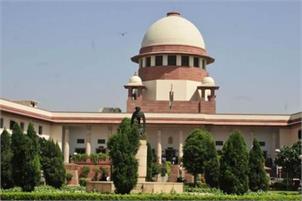
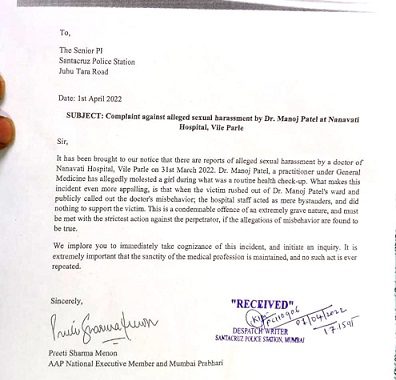
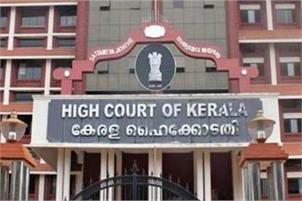
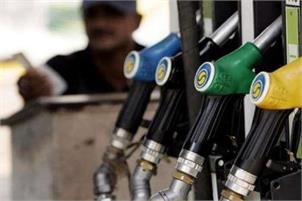
![Good Luck (2017) Full [Movie] Free](https://1.bp.blogspot.com/-LkuzTnPXx-k/WWFFgTJ4BnI/AAAAAAAAABM/GV3buifpw9k40Ky4pfK0TYOznnm4vrn5wCPcBGAYYCw/buttons%2B%25282%2529.jpg)

![Online [Free Watch] Full Movie ‘Til Death Do Us Part (2017)](http://image.tmdb.org/t/p/w780//wRVg3MLudXM5WJAtoibM0pOb8Dl.jpg)

![[Streaming] Annabelle: Creation (2017)](https://i1.wp.com/image.tmdb.org/t/p/w185//9frToqngSAP6qtGrARMxoy6yg3f.jpg)
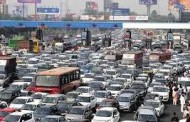
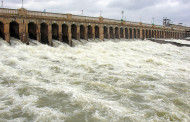
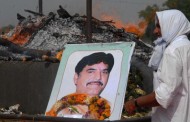
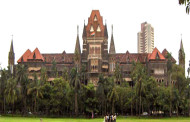
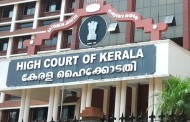
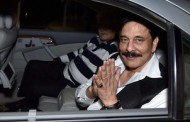
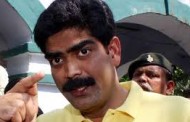





Recent Comments